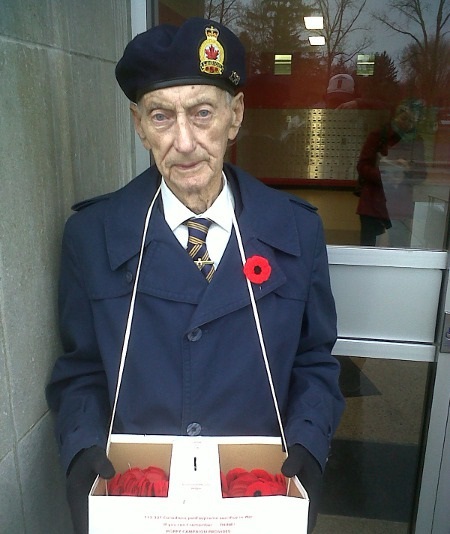The Greatest Generation is a term coined by journalist Tom Brokaw in reference to those who grew up during the Great Depression and went on to fight in World War II. Brokaw described them as, “the greatest generation any society has ever produced,” arguing that rather than fighting for fame and recognition, these men and women fought because [history has shown] it was the right thing to do.
Following the war it was this Greatest Generation who came home to build the social, cultural and economic strength that we all continue to benefit from today. I think of 65 years of new and expanding commercial, industrial and agri-business that rebuilt strong North American economies. Today we continue to see their significant contributions to science, literature, art, industry, and a renewed economic strength unparalleled in history.

As with those who fought WWI, this generation was united by a common purpose, and by common values—values that include duty, honour, economy, courage, service, love of family and country, and, above all, responsibility for oneself. Instead of state-of-the-art technology, they had loyalty, integrity, and determination that overshadowed any fears. We should all strive to emulate their examples of selflessness and noble character.
There is one clear difference between that generation and subsequent ones – no sense of entitlement. No one believed that he or she was entitled to special privileges and no one expected the world to be fair. They took the world as they found it, made the best of it, and then made it better.
They succeeded on every front. After returning victorious from the war, they immediately began the task of rebuilding their lives and the world they wanted. Marrying in record numbers, they gave birth to the next distinctive generation known as the Baby Boomers. Despite the accomplishments and essential contributions as they experience the twilight of their adventurous and productive lives, the Greatest Generation remains, for the most part, exceptionally modest. They have so many stories to tell, stories that in many cases they have never told before, stories that we can all learn from if we only take the time to listen.
We have many opportunities at this time of year to recognize the dedication and service of this generation – and others – who fought for us.
While our thoughts and thanks go to those who are presently on, or supporting, the front lines, we must continue to learn from the lessons of the past – those that were taught to us by the ‘Greatest Generation’. For the Silo, Toby Barrett MPP.

Leave a Reply
You must be logged in to post a comment.